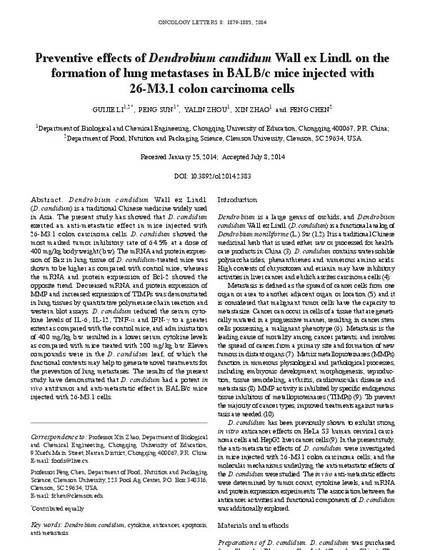
Dendrobium candidum Wall ex Lindl. (D. candidum) is a traditional Chinese medicine widely used in Asia. The present study has showed that D. candidum exerted an anti-metastatic effect in mice injected with 26-M3.1 colon carcinoma cells. D. candidum showed the most marked tumor inhibitory rate of 64.5% at a dose of 400 mg/kg body weight (b.w). The mRNA and protein expression of Bax in lung tissue of D. candidum-treated mice was shown to be higher as compared with control mice, whereas the mRNA and protein expression of Bcl-2 showed the opposite trend. Decreased mRNA and protein expression of MMP and increased expression of TIMPs was demonstrated in lung tissues by quantitative polymerase chain reaction and western blot assays. D. candidum reduced the serum cytokine levels of IL-6, IL-12, TNF-α and IFN-γ to a greater extent as compared with the control mice, and administration of 400 mg/kg b.w. resulted in a lower serum cytokine levels as compared with mice treated with 200 mg/kg b.w. Eleven compounds were in the D. candidum leaf, of which the functional contents may help to generate novel treatments for the prevention of lung metastases. The results of the present study have demonstrated that D. candidum had a potent in vivo antitumor and anti-metastatic effect in BALB/c mice injected with 26-M3.1 cells.

Published version of this article can be found here: http://www.spandidos-publications.com/ol/